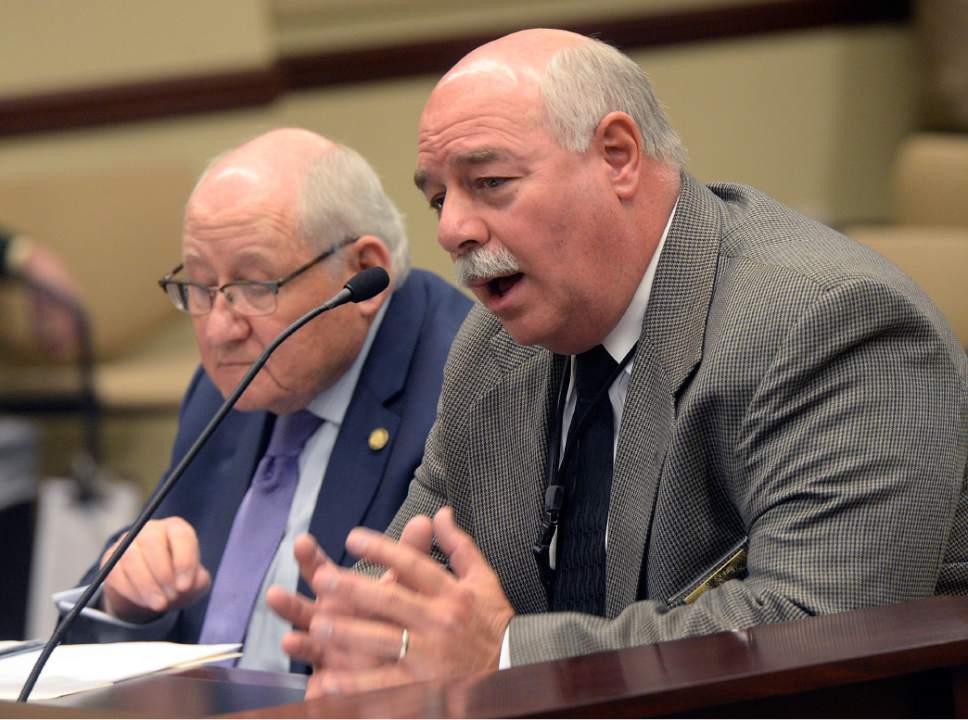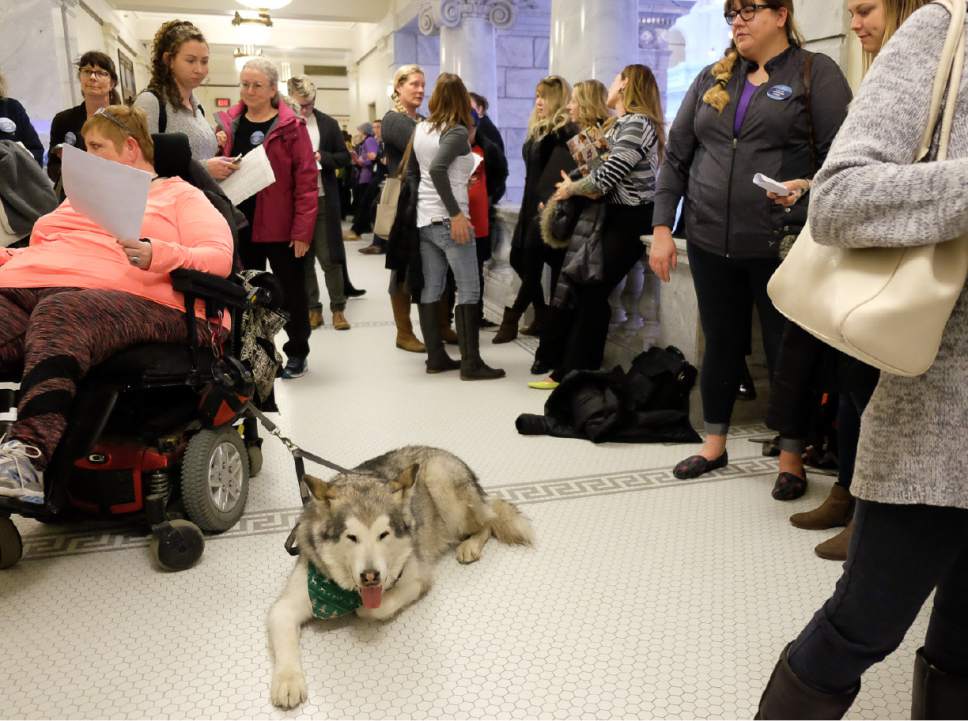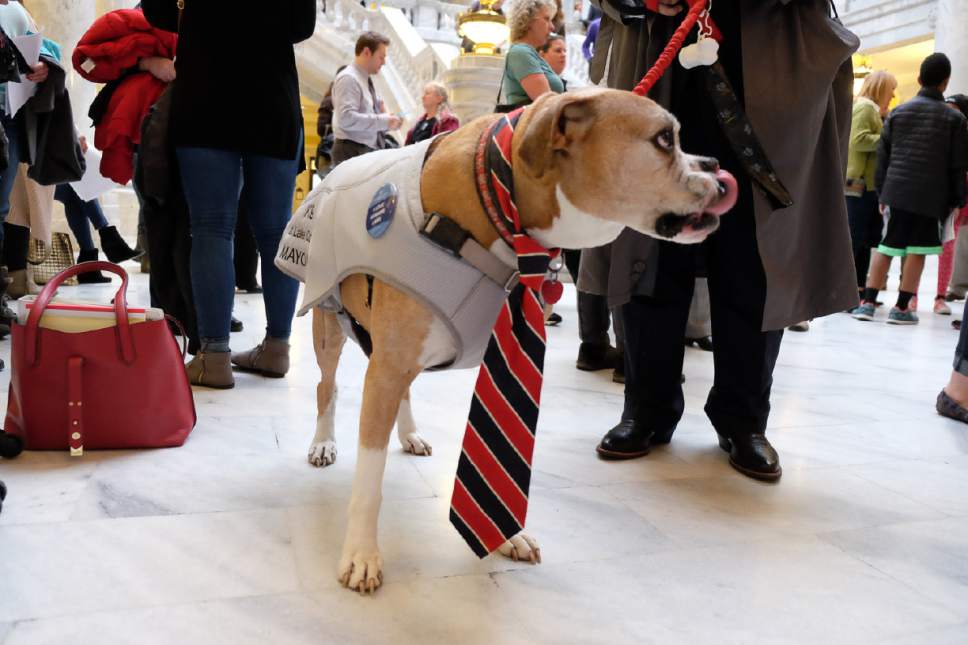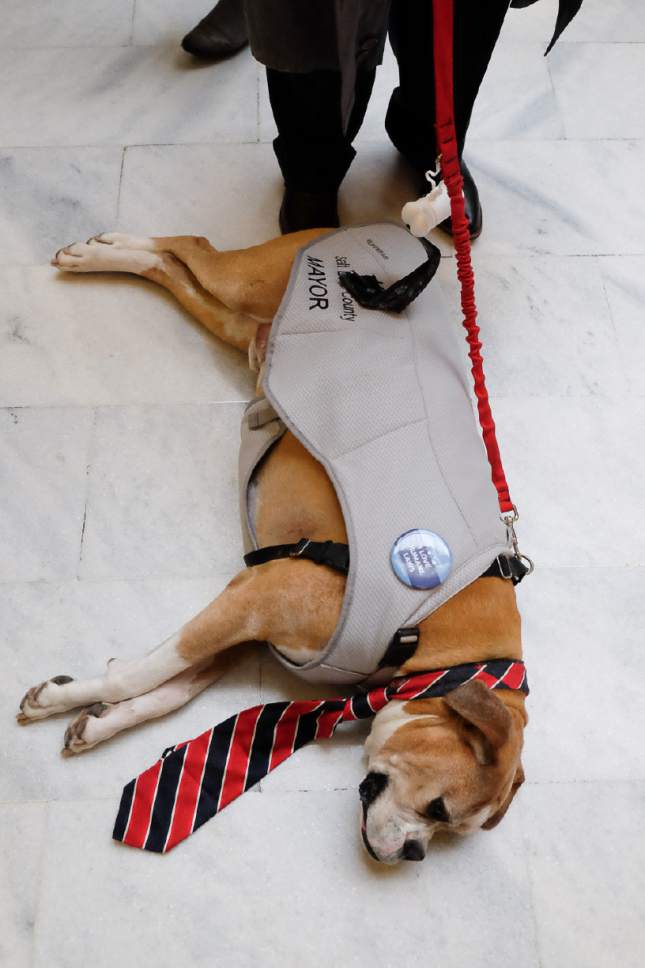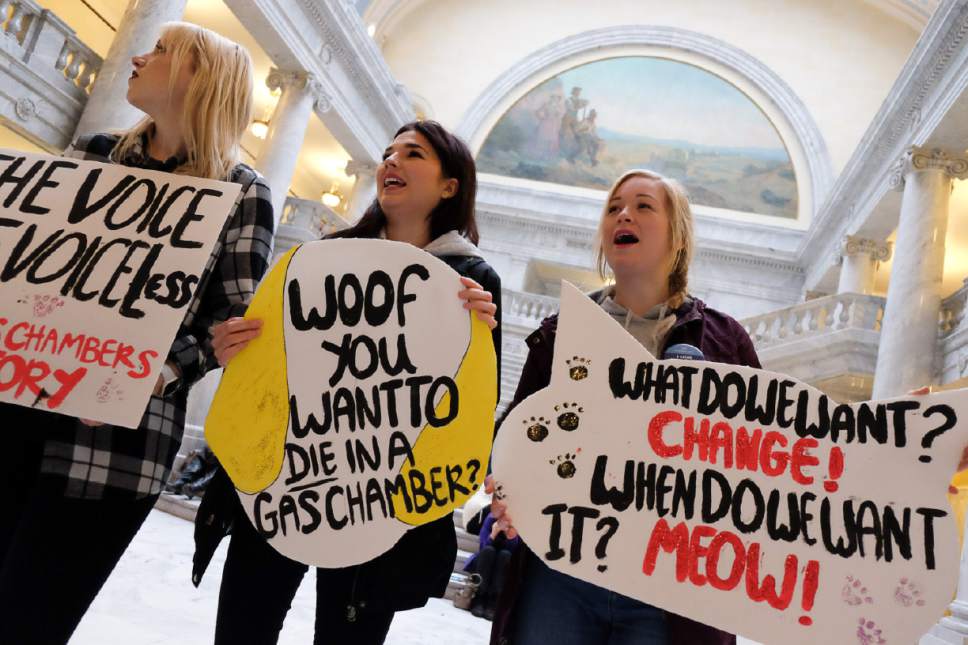This is an archived article that was published on sltrib.com in 2017, and information in the article may be outdated. It is provided only for personal research purposes and may not be reprinted.
A bill to ban using carbon monoxide "gas chambers" for euthanasia in animal shelters was itself smothered on Thursday.
The House Government Operations Committee killed SB56 on a tie 4-4 vote. It had previously passed the Senate 19-7 — and had attracted earlier Capitol rallies by animal lovers in support.
But the committee killed it after some agencies that still use gas chambers argued they are needed for hard-to-handle wildlife and feral animals.
Utah County Sheriff Jim Tracey opposed the "elimination of choice. … We do euthanize with injection, and we also euthanize with the chamber based on the issue of the animal" and how difficult it is to handle.
"There is less risk to our staff," he said. The sheriff added that his staff dislikes holding and injecting an animal to kill it, and said it is easier on their mental health to use a chamber.
But the bill's sponsor, Sen. Pete Knudson, R-Brigham City, read a letter from Davis County animal control that gave an opposite opinion.
Davis County, which has no gas chamber, used injection last year to euthanize 857 raccoons, 282 skunks, 86 feral cats and 49 injured or hard-to-handle dogs — with no injuries to workers.
It also said Davis County has had no turnover in its animal control staff since 2014, in part because they prefer using injections as more humane.
Five of the 57 shelters in the state use gas chambers, according to Gene Baierschmidt, executive director of the Humane Society of Utah.
Knudson said euthanasia by injection is less costly, quicker and more humane. He said animals lose consciousness in three to five seconds.
But he testified that with a gas chamber, people often "hear them crying and barking and shrieking. It's not without pain. These are the things that disturb me."
He added, "How we treat our animals says a lot about our character. I believe this [using injection] is a much more humane method."
Earlier in the legislative session, several groups — including the Humane Society and Best Friends Animal Society — said they offer grants to help cover the costs of transition and any higher costs from injections to try to overcome arguments that the bill may cost some agencies thousands of dollars.


